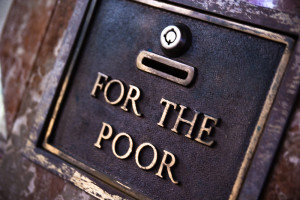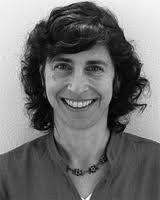 A few weeks ago, I was told that a small check arrived from a Polack Food Bank home delivery recipient. There was also a note of thanks and a request that the money be used to help others.
A few weeks ago, I was told that a small check arrived from a Polack Food Bank home delivery recipient. There was also a note of thanks and a request that the money be used to help others.
Around the same time, an unemployed friend told me that she found herself more generous with financial gifts to organizations helping those in need. Feeling vulnerable herself, she had a greater awareness of people who she saw as even more at risk.
These experiences caused me to think again about the difference between charity and tzedakah. In Judaism, we don’t give “charity.” Charity is based on the Latin word, caritas, which means preciousness or dearness. According to Wikipedia, “The practice of charity means the voluntary giving of help to those in need, as a humanitarian act.”
In Jewish tradition, giving gifts to others is called tzedakah – based on the root tzedek, which means righteous. Tzedakah is not voluntary. It is an obligation. It is not seen as a humanitarian act. Giving tzedakah is an act of doing what is right.
In Jewish terms, the people who were giving from their limited resources weren’t being “generous” or “humanitarian.” They were simply doing what was right. That feels like a much less patronizing response to their gifts. And a much less arrogant way to think about my own giving.
With tzedakah, we’re expected to give 10 to 20 percent of our income, even if that income comes in the form of gifts. Our sages teach that everyone, even those who receive tzedakah, must give tzedakah. The rules on how to calculate the 10 percent minimum are complex. There are more and less lenient ways to calculate it. But none of the rules give an exemption to the obligation of tzedakah unless a person literally is starving.
Why? The requirement for everyone to give tzedakah is a matter of dignity. It is an essential part of community membership. Whether we know that we have more than enough or whether we are recipients of gifts from others, there is nothing more powerful than giving tzedakah as a way to remind ourselves of our shared humanity.
I especially like the way my teacher Danny Siegel expresses his understanding of our shared humanity in this poem.
Even a Poor Man
Even a poor man must give Tzedakah
He knows what it is like:
He knows the people,
where it is best to give,
and how much.
Better than we know.
He is our Rebbi –
we should follow him on his rounds.
 By Beth Huppin
By Beth Huppin
Beth is the Director of JFS Project Kavod/Dignity. She has enjoyed teaching Judaics to children and adults of all ages in both formal and informal settings for over 30 years. She is the recipient of a 2010 National Covenant Award for Excellence in Jewish Education.
Photo Courtesy of Steven Depolo.



